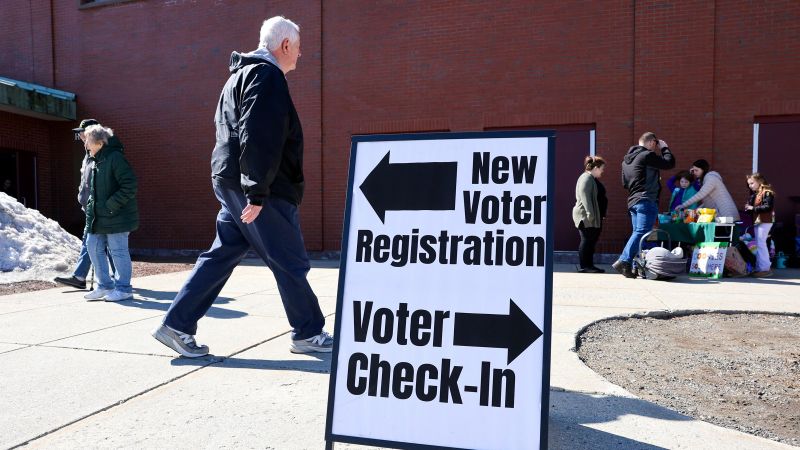GOP-led states are pushing for voter registration requirements that mandate proof of citizenship, despite facing obstacles at the national level. Twenty-two states have considered such legislation this year, a significant increase from just six states four years ago. These efforts stem from claims of voter fraud by noncitizens, though evidence is lacking. The Republican-controlled US House passed a proof-of-citizenship bill, but its Senate passage is uncertain due to expected Democratic opposition.
President Trump issued an executive order aiming to strengthen proof of citizenship requirements, sparking legal challenges. Critics argue that these requirements could disenfranchise millions of Americans who lack easy access to necessary documents. While noncitizen voting is rare, some states have experienced issues with citizenship mandates, such as Kansas denying registrations due to lack of documentation.
Efforts to change voting laws extend beyond state legislatures, with bills in populous states like Florida and Texas requiring proof of citizenship for voter registration. These initiatives have provoked debate on whether such laws could suppress voting and disenfranchise eligible citizens. Legal battles are anticipated, especially regarding limitations on voting rights in federal elections.
In light of these developments, voter rights advocates warn against laws that may hinder voting access and urge lawmakers to consider the potential consequences of stringent proof-of-citizenship requirements. The ongoing debate underscores the complexities surrounding voting laws and the balance between preventing fraud and safeguarding citizens’ voting rights.

